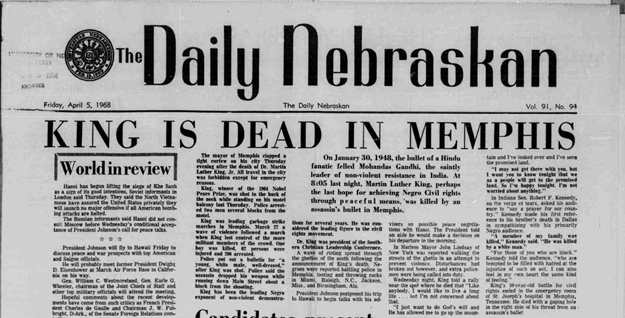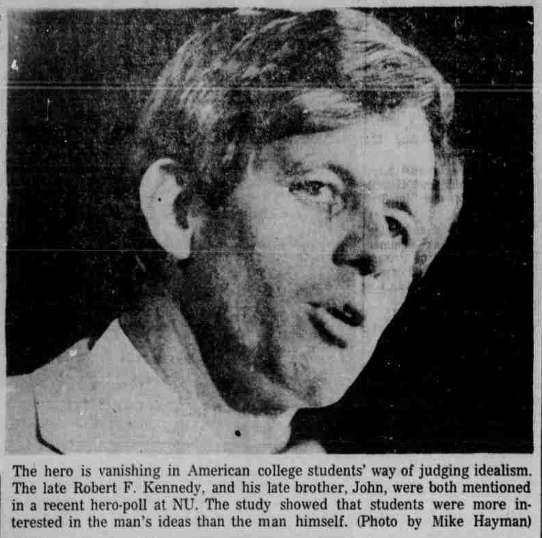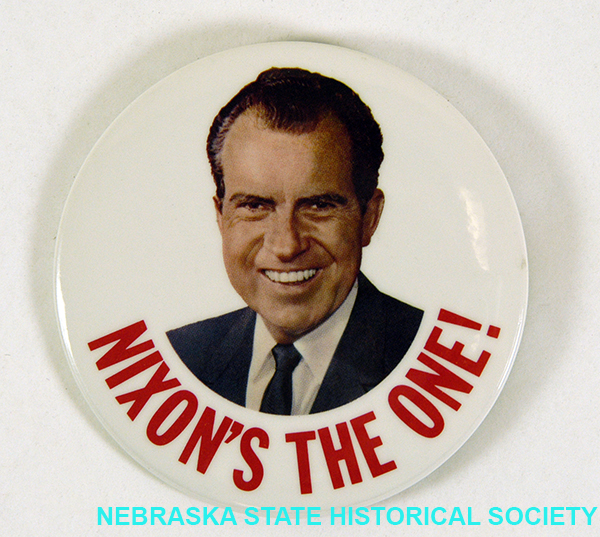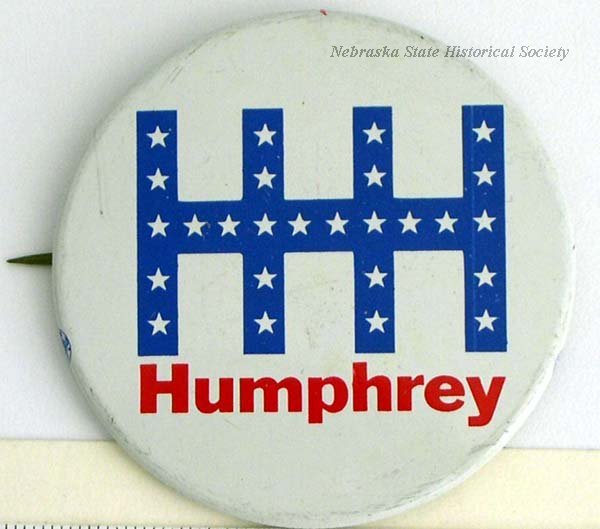TV was full of protesters demonstrating everywhere, sometimes setting fires and breaking windows. What was happening to our country? I’ve been asking that same question frequently recently as I flash back to 1968, my senior year at UNL. Forget any romantic nonsense about the ’60’s. Here’s what that year was like for me and my friends.

By Eileen Wirth
“Get out of here. I can’t teach today.”
It was the morning after Dr. Martin Luther King’s assassination in April of 1968 and our political science professor, a retired military officer, departed as rapidly and grimly as he had come. It was an awful day.
TV was full of protesters demonstrating everywhere, sometimes setting fires and breaking windows. What was happening to our country?
I’ve been asking that same question frequently recently as I flash back to 1968, my senior year at UNL. Forget any romantic nonsense about the ’60’s. Here’s what that year was like for me and my friends. Apologies if my political views offend but they are integral to this account.
Just as the pandemic hovers over everything now, the Vietnam War was our omnipresent black cloud. By early 1968, there were more than 400,000 Americans fighting there with the number likely to increase. Racial issues also fueled the unrest and disturbances.
OMG! They were coming after the guys I knew, the privileged Boomers who had gone to college on draft deferments knowing the war would be over by graduation. It wasn’t. It had gotten far worse.
As college kids suddenly realized they could get drafted and killed like blue collar blacks and whites, many took to the streets as they had seen civil rights demonstrators do. And the cops pushed back. Lincoln was placid but Omaha suffered disturbances.
The political landscape was grim. We expected President Johnson to run against Richard Nixon: the war escalator vs. the candidate of law and order. In addition, George Wallace of Alabama traveled the country stirring up racial hostility to win votes.
Due to the rioting following Wallace’s spring rally in Omaha, the State Basketball Tournament moved to Lincoln with National Guardsmen on duty at the Coliseum for all games, even those between rural schools. Could this be happening on OUR campus?
After anti-war Sen. Eugene McCarthy almost defeated Johnson in the New Hampshire primary, my hero, Sen. Robert Kennedy, entered the race while Johnson abruptly announced he wouldn’t run.
Suddenly Nebraska counted in the presidential race since we were one of only 14 states that had a presidential primary. I skipped a geology lab to hear Bobby speak to a packed Coliseum, unfortunately about agriculture not the war, but we had seen Bobby!
He campaigned hard in Omaha, making one important speech chastising Creighton University students for opposing the draft and letting poor blacks and whites fight the war. A photo of him making that speech now hangs in my basement. I brought it home from my office at Creighton when I retired after teaching journalism there for 25 years. Kennedy won our primary then moved on to Oregon and California.
The morning after the California primary, June 5, I eagerly turned on my radio to find out if he had won since TV stations went off the air at midnight. Driving to a summer class, I heard the terrible news.
“Sen. Kennedy is in extremely critical condition,” said the announcer. Bobby had been shot in the head and was clinging to life but could not recover. Not again!
My job at the Lincoln Journal that day was to watch the wire service machines to rush the news of his death to the news editor. I can still see those machines just as the images of his funeral train remain vivid. I prayed that our hope for healing our country did not die with Bobby but it felt like it.

Daily Nebraskan, June 11, 1968, p. 4.
In July, I graduated and clung to the last few weeks with my friends, many facing an uncertain future with the draft. We watched the Democratic Convention in Chicago at night, dismayed by the violence between student protesters and police.
Poor Vice President Hubert Humphrey, the decent-but-traditional Democratic candidate. He never recovered from those awful images as Nixon constantly promised to restore law and order. Under Nixon, the country experienced four more years of a bigger war and expanded protests.
Back then, they called Nixon’s supporters the “silent majority” instead of the president’s “base” but the battle lines and images are hauntingly similar to today with one significant difference.
Supposedly the current law and order campaign is aimed at older voters just like in 1968. But many of the people like me who are having flashbacks to 50 years ago haven’t changed our politics as our hair color has changed. We remember the horrors of 1968 only too well.
But even so, I’d like to offer a word of hope for the current generation. We survived graduating in 1968 and I’m optimistic that somehow you’ll get through this too. Believe me, we’re all for you during this terrible time.
Dr. Eileen Wirth is a History Nebraska trustee and an emerita professor of journalism at Creighton University. She is a University of Nebraska-Lincoln alumna, Class of 1968.


Do you remember 1968? Or do your parents or grandparents have stories? Here are some other Nebraska perspectives on that crucial year:
The 1968 Nebraska Republican Primary (PDF), from Nebraska History, Fall 2014.
Robert Kennedy and the 1968 Nebraska campaign trail (blog post)
Video of Robert F. Kennedy in Nebraska (YouTube)
“And Then the Burnings Began”: Omaha’s Urban Revolts and the Meaning of Political Violence (PDF), from Nebraska History, Summer 2017.
1968 Presidential Campaigns in Nebraska, 2008 Nebraska History Museum lecture by Bill Kelly of NET Television (YouTube)
’68: The Year Nebraska Mattered (NET Television)
(Posted 6/30/2020)




